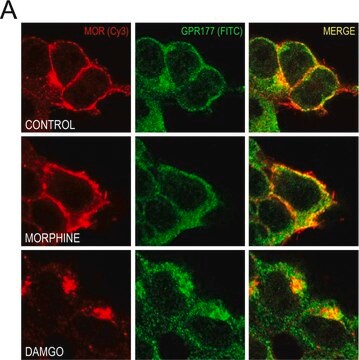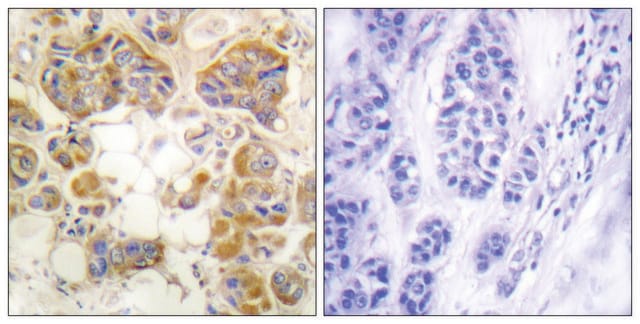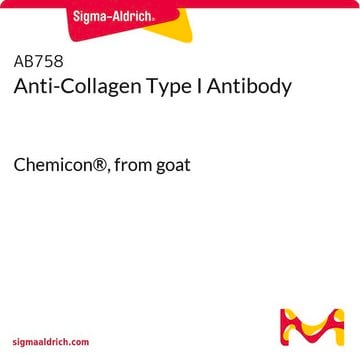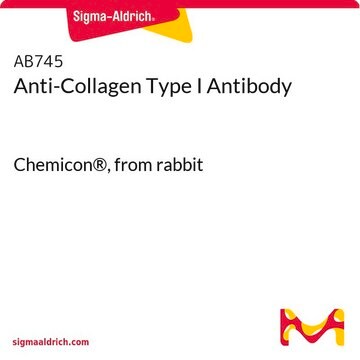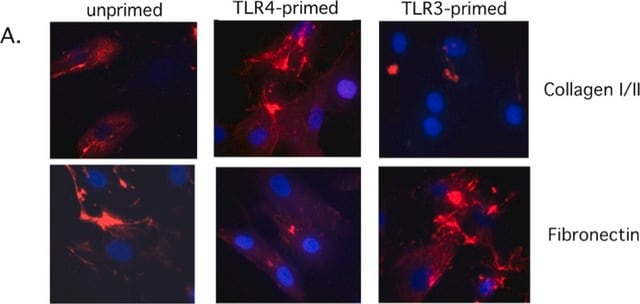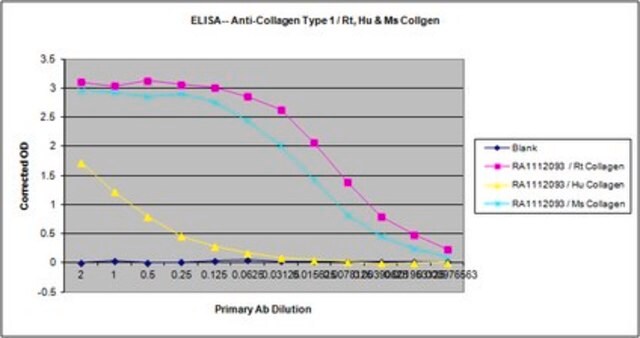AB749P
Anti-Collagen Type I Antibody
Chemicon®, from rabbit
About This Item
Recommended Products
biological source
rabbit
antibody form
purified immunoglobulin
antibody product type
primary antibodies
clone
polyclonal
species reactivity
bovine
manufacturer/tradename
Chemicon®
technique(s)
ELISA: suitable
immunohistochemistry (formalin-fixed, paraffin-embedded sections): suitable
radioimmunoassay: suitable
suitability
not suitable for Western blot
NCBI accession no.
UniProt accession no.
shipped in
dry ice
Gene Information
human ... COL1A1(1277)
Specificity
Antibody shows less than 0.1% cross reactivity in RIA at 1:500 dilution with bovine collagen types II, IX & XI, or fibronectin; other collagens and ECM proteins untested.
Reactivity with human collagen type I <2.0% with RIA, 1:500; reactivity with Chicken collagen type I, less than 0.1% by RIA at 1:500 dilution.
Immunogen
Application
Immunohistochemistry on 2% formalin or PFA fixed, paraffin embedded tissues requires HEIR antigen retrieval and enhanced enzymatic detection; methyl-carnoy, acetone, or acid-aldehyde fixation can enhance reactivity for paraffin sections.
Radioimmunoassay
ELISA: 1:200 direct
Not recommended for Western blots.
Cell Structure
ECM Proteins
Linkage
Physical form
Storage and Stability
Other Notes
Legal Information
Disclaimer
Not finding the right product?
Try our Product Selector Tool.
Storage Class Code
12 - Non Combustible Liquids
WGK
WGK 2
Flash Point(F)
Not applicable
Flash Point(C)
Not applicable
Regulatory Listings
Regulatory Listings are mainly provided for chemical products. Only limited information can be provided here for non-chemical products. No entry means none of the components are listed. It is the user’s obligation to ensure the safe and legal use of the product.
JAN Code
AB749P:
Certificates of Analysis (COA)
Search for Certificates of Analysis (COA) by entering the products Lot/Batch Number. Lot and Batch Numbers can be found on a product’s label following the words ‘Lot’ or ‘Batch’.
Already Own This Product?
Find documentation for the products that you have recently purchased in the Document Library.
Customers Also Viewed
Our team of scientists has experience in all areas of research including Life Science, Material Science, Chemical Synthesis, Chromatography, Analytical and many others.
Contact Technical Service
